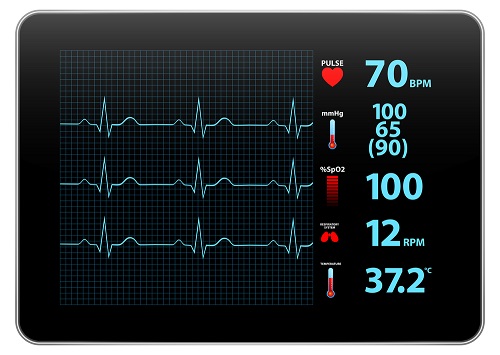 Written by: Dominick L. Flarey, Ph.D, RN-BC, NEA-BC, FACHE
Written by: Dominick L. Flarey, Ph.D, RN-BC, NEA-BC, FACHE
As the population of older adults continues to grow, so does the demand for home care services. Case management is a critical component of home care, as it helps to ensure that patients receive the coordinated care they need to improve their health outcomes.
Case managers work with patients and their families to develop a care plan that meets their specific needs. They also coordinate home care with other providers, such as home health aides, nurses, and doctors. This coordinated approach ensures that patients receive the best possible care. The goal of home care case management is to provide high-quality, cost-effective care that is in the best interest of the patient and their family.
Monitoring patients’ progress is an important part of case management in home care. By tracking patients’ health status and response to treatment, case managers can identify potential problems early on and take steps to address them.
Regular monitoring also allows case managers to evaluate the effectiveness of care plans and make necessary adjustments. This is especially important in home care, where patients may have complex needs and be receiving care from multiple providers. By closely monitoring their patients’ progress, home care case managers can play a vital role in ensuring that they receive the high-quality, coordinated care they need to improve their health outcomes.
Types of Technology
Over the past decade, information and wireless technology companies, senior long-term care entities and colleges and universities have developed and offer a line of products aimed at supporting professional home health care services and family caregiving.
Information technology applications and programs provide accounting and billing services and medical recordkeeping for home health care providers and biometrics, emergency phone calls, live customer services, medical alerts for patients and social activities coordination for seniors and their caregiving families.
Home health care is a rapidly growing industry, and technology plays an important role in providing care for patients. There are many different types of technology available to help home health care providers, including software that helps with scheduling and accounting, communication tools, and medical devices. Technology can help home health care providers provide better care for their patients, and it can also help patients stay connected to their loved ones and receive the support they need.
One of the most important advances in patient care technology is the ability to monitor heart function at home. This can be done through wearable devices that track heart rate and rhythm, or by using devices that measure electrical activity in the heart (ECG). These devices can help detect arrhythmias or other problems with heart function early on, before they become serious.
The home care technology market is growing rapidly as the demand for patient support services increases. Billing, medical records, food service ordering, and patient communications are all areas where home care technology can play a role.
Billing systems that allow patients to pay their bills online or through a mobile app are becoming more popular. Medical records systems that give patients access to their health information from a secure website or app are also gaining popularity. Food service ordering systems that allow patients to order their meals from a mobile app or website are becoming more common. And patient communication systems that allow patients to stay in touch with their care team via text, email, or video chat are becoming more prevalent.
According to the FCC, “an effective emergency alert system (EAS) can save lives and property by providing timely and accurate information about an impending hazard.” Emergency medical alert devices and systems are life-saving tools that can be used in the event of a medical emergency. These devices can be worn as a pendant or bracelet, and they can be connected to your home’s landline or cellular phone.
When activated, these devices will send a signal to the monitoring center, which will then dispatch emergency medical services (EMS). The monitoring center will also contact your loved ones or designated caregivers to let them know that you have requested help.
As a certified case manager, you are responsible for ensuring that your patients receive the best possible care. To do this, you must be well-informed about the technology used in home care today. Patient care technology has come a long way in recent years, and it is constantly evolving. As a case manager, it is your responsibility to stay up-to-date on the latest trends and developments. This will help you make sure that your patients are getting the best possible care.
Hospital admissions are costly and stressful for both patients and their families. By staying up-to-date on the latest patient care technology, you can help reduce hospital admissions and re-admissions. This will improve the overall quality of care for your patients and save money for patients and the health care system.
 Some Companies Providing Advanced Technologies
Some Companies Providing Advanced Technologies
The following companies, applications and programs have been touted by researchers and experts in the senior care industry and government policymakers and lawmakers:
- Acumen–In the last 23 years, this Mesa, Ariz.-based company provides financial management services for senior short-term care and long-term care facilities, states, counties and managed care organizations nationally, including billing, enrollment, and payment processing, reporting and training.
- AT & T and Numera Libris–Both companies collaborate to blend wireless technology by AT & T with traditional emergency response systems by Numera to form comprehensive medical support for seniors with chronic conditions or transitioning from hospital care to skilled nursing or home health care. The result is meant to address personal safety and home health management. Called a “personal health gateway,” the system combines mobile emergency response, two-way voice, fall detection and location tracking.
- Critical Signal Technologies (CST)–This Pittsfield, Mass. and Farmington Hills, Mich. Company provides a suite of personal emergency and medical monitoring services that assist patients with dizziness, falling, mobility issues, muscle weakness and vision problems. CST provides adaptive switches for quadriplegia, care transition and vital sign monitoring, cellular upgrades, coaching, door/window contacts, lock box, medication management, motion detector, multi-lingual response with fall down detection, multi-tenant coverage, pillow switch to summon help, reminder messaging, sensor mats, smoke or carbon monoxide alarm, standard personal response system, strobe lights and wall communicators.
- CASOA–CASOA, which stands for The Community Assessment Survey for Older Adults, is a research survey program specializing in needs and preferences assessments of seniors offered by the National Research Center, Inc., a national survey research and evaluation firm based in Boulder, Colo. The program is meant to assist local governments, area agencies on aging, homeowners associations, senior short-term care and long-term care facilities and service providers to develop their social and medical programs for seniors.
- Hamilton CapTel–This is a free, nationwide, telephone captioning service meant to make phone calls simple, clear and accessible for individuals with hearing loss. The company supplies phones with the captioning service in an app product that is compatible with and can be used with PCs, MacBook’s, iPhone, Android, BlackBerry smartphones, iPad and Android tablets.
- iHealthHome–The Seattle-based company provides in-home monitoring and communications systems to enable care coordinators, family caregivers, home health care agencies, and; senior long-term and short-care facilities, including assisted living, congregate care and nursing homes. Services include assessments, biometrics, care management, communication between seniors and their caregiving families, in-home concierge system to order food and medicine by computer, medication management, messages for caregiver tasks, motion activity monitoring for safety, questionnaires, remote supervision, time and attendance tracking and video visits.
- Intel-GE Care Innovations–The resulting personal response system is the result of a partnership between Intel, the computer chip company, and General Electric, the electrical services and government defense contractor. The suite includes a personal help button, emergency assistance, home base, medical alerts and 24-hour live response operators.
- Panasonic HomeTeam–Panasonic, based in Newark, N.J., and Osaka, Japan, has developed an online service called HomeTeam meant to serve homebound seniors and their family caregivers that uses a video chat app for a tablet, laptop and computer to access interactive books such as Curious George and games such as chess and checkers with video calling. The app can be downloaded by grandparents and their grandchildren from the Apple App Store or Google Play and can be used with Androids or iPads. The company works with publishers such as Houghton Mifflin Harcourt Publishing company, Disney and game developers to maintain children’s games and games on the company website.
- SilverTreeHealth–This Chandler, Ariz.-based company provides integrated electronic health reporting and automated medical billing services that includes coding experts, software and efficiency controls. Service includes user-friendly interface, a boost of HIPAA compliance for senior long-term care facilities and other service providers; claim scrubbing; electronic resubmission of claims; payroll cost reductions; missed visit tracking; staff embezzlement reduction; accounting program integration; e-Eligibility; free live support; live, free upgrades; hourly backups; secure direct payments to bank accounts; real-time integration with thousands of insurance carriers; complete practice visibility; claims management tools; insurance practice profiling; accurate claim coding and tracking of contracted rates; patient scoring to determine likelihood to pay; scheduling of integration with billing processes; ePrescribe and eClaims; integrated credit card processing; experienced billing staff, and; weekly reviews of practice efficiencies.
Whether they specialize in billing, biometrics, emergency alerts, fall prevention, patient care monitoring, family ties or medical records management, these aforementioned products are meant to contribute to a comprehensive suite of solutions for families who cannot fulfill certain necessary tasks in caring for seniors and need outside technical intervention.
Summary
In recent years, nurse case managers have been increasingly managing in-home patients using care technology within more sophisticated health care delivery systems. This shift has been driven by a number of factors, including the increasing prevalence of chronic conditions, the aging population, and the rise of consumer-driven health care.
Care technology has played a major role in enabling nurse case managers to more effectively manage in-home patients. By providing real-time data on patients’ condition and allowing for two-way communication between patient and provider, care technology has helped to improve patient outcomes and satisfaction while reducing costs.
As health care delivery systems continue to evolve, it is likely that nurse case managers will play an even greater role in managing in-home patients using care technology. This trend represents a major opportunity for nurses to impact the quality and cost of health care delivery.
Case Management Certification
Are you a registered nurse or a health care professional interested in pursuing a career in Case Management? The American Academy of Case Management offers a full curriculum of continuing education courses in case management as well as a national Certification Program. To find out more about our programs, access here.
Additional Resources:
- Why Home Healthcare Needs More Technology and Training. Jessica Longly. HealthTech. October 29, 2020. Access here
From Facility to Home: How Health Care Could Shift by 2025. Oleg Bestsennyy, et.al. McKinsey & Company. February 1, 2022. Access here








